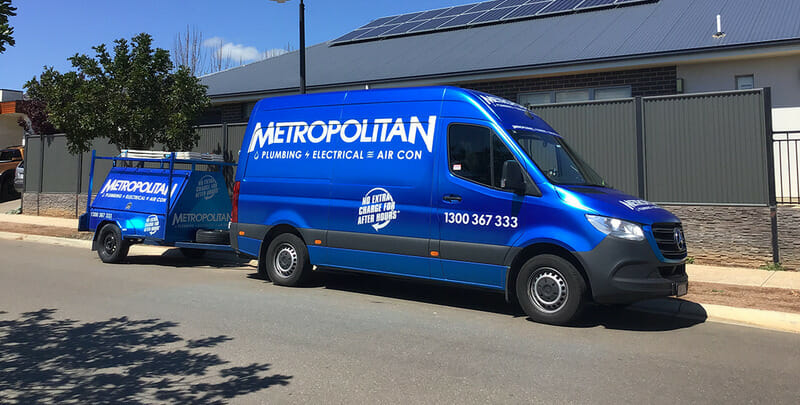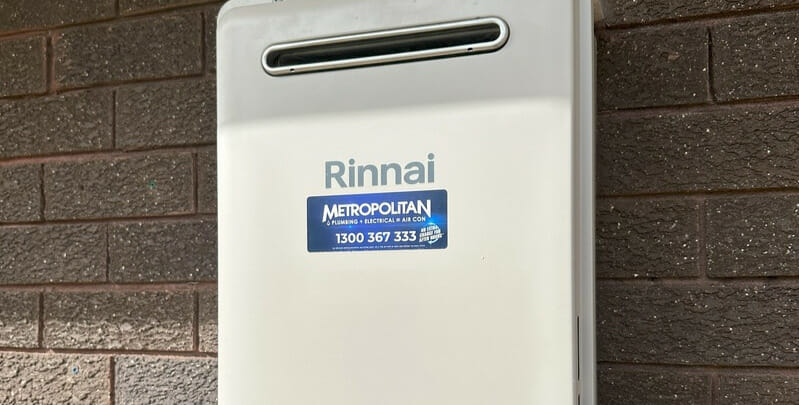
Electric Hot Water System vs Gas Hot Water System: Making the Right Choice for Your Home
Are you in the market for a hot water system for your home? If so, making an informed decision that meets your needs and ensures a reliable hot water supply is essential.
Choosing between an electric hot water system and a gas hot water system can be tough. That’s why this guide will walk you through the decision-making process.
Explore the advantages and considerations of both systems, helping you make the right choice for your home. Read on to discover the key factors enabling you to choose the best hot water system for your household.
Electric Hot Water Systems
Electric hot water systems are widely used in Australian households because they are easy to install and require minimal maintenance. These systems use an electric element to heat the water in a storage tank available throughout the day. Here are some key points:
-
Efficiency and Energy Consumption
Electric hot water systems are generally considered less energy efficient than gas systems. Heating the water using electricity can result in higher energy consumption and, consequently, increased electricity bills.
-
Initial Cost and Running Costs
Electric hot water systems are often more affordable to purchase and install than gas systems. However, their running costs tend to be higher due to the cost of electricity. It’s important to consider both the initial cost and the long-term running costs when making your decision.
-
Installation and Venting Requirements
Electric hot water systems are typically easier since they don’t require venting for combustion gases like gas systems. Additionally, they can be installed indoors, making them a suitable choice for homes without adequate outdoor space.
-
Heating Method
Electric hot water systems heat the water using an electric element. This method can be slower than gas systems, resulting in a slightly longer wait time for hot water at the tap.

Gas Hot Water Systems
On the other hand, gas hot water systems use natural gas as their energy source to heat the water. These systems are known for their efficiency and reliability. Let’s explore the key points related to gas hot water systems:
-
Energy Efficiency
Gas water heaters are generally more energy efficient than electric systems. They produce fewer greenhouse gas emissions, making them a greener choice for environmentally conscious individuals.
-
Continuous Flow vs Storage Tank
Gas hot water systems can be classified into two main types: continuous flow and gas storage systems. Continuous flow systems heat the water on demand, providing an endless hot water supply. On the other hand, gas storage systems heat and store a predetermined amount of water in a tank, ensuring hot water availability even during peak usage times.
-
Flow Rate and Water Heating
Gas hot water systems often have a higher flow rate than electric systems, allowing multiple hot water outlets to be used simultaneously. This makes them ideal for households with high hot water demand.
-
Initial Cost and Venting Requirements
Gas hot water systems generally have a higher initial cost than electric systems due to the installation of gas lines and venting requirements. Gas systems must also be installed outdoors or in a well-ventilated area to ensure proper air circulation and safety.
Which System is Right for You?
When deciding between an electric hot water system and a gas hot water system, consider the following factors:
- Energy consumption and running costs: A gas hot water system may be the better option if you prioritise low running costs and energy efficiency. However, an electric hot water system can still be cost-effective if you have access to off-peak electricity or are in an area with low electricity prices.
- Space and installation requirements: Consider the space available in your home for installation. Electric hot water systems are typically smaller and can be installed indoors, while gas systems require outdoor space or a well-ventilated area.
- Heating demands and hot water usage: Assess your household’s demands. A gas system with a higher flow rate might be more suitable if you have a large family or require hot water for multiple tasks simultaneously. However, an electric hot water system can suffice for smaller households with lower hot water usage.
- Environmental impact: If reducing greenhouse gas emissions is important, consider opting for a gas hot water system. They have lower emissions than electric systems, especially if you can access natural gas.

Exploring Other Alternatives
While comparing electric and gas hot water systems, it’s worth considering other alternatives that might better suit your needs. Let’s explore three additional options: electric instantaneous water heaters, solar hot water systems, and heat pumps.
Electric Instantaneous Water Heaters
Electric instantaneous water heaters, or tankless water heaters, provide hot water on demand without needing a storage tank. These systems heat the water as it flows through the unit, offering instant hot water whenever required. Here are some key points to consider:
- Energy efficiency and cost savings: Electric instantaneous water heaters are highly energy efficient since they heat the water only when required, eliminating standby heat losses. This results in potential cost savings on your electricity bills.
- Compact size and space saving: These units are typically smaller and can be installed closer to the point of use, saving valuable space in your home.
- Limitations on multiple hot water outlets: Electric instantaneous water heaters provide hot water on demand; their capacity may be limited when multiple hot water outlets are used simultaneously. Consider your household’s hot water demands to ensure this option meets your requirements.
Solar Hot Water Systems
A solar hot water system uses the sun’s energy to heat water, providing a sustainable and cost-effective solution. These systems consist of solar panels that absorb sunlight and transfer the heat to a storage tank. Here’s what you need to know about solar hot water systems:
- Renewable energy and reduced environmental impact: These systems significantly reduce greenhouse gas emissions and reliance on traditional energy sources by harnessing solar energy.
- High initial cost, long-term savings: While the upfront cost of installing solar hot water systems can be higher than electric or gas systems, they offer long-term savings on energy bills and can increase the value of your property.
- Considerations for installation: Solar panels require sufficient sunlight exposure for optimal performance. Consider the positioning of your home and any potential shading issues that may affect the system’s efficiency.
Heat Pumps
A heat pump is another energy-efficient alternative for hot water heating. These systems extract heat from the surrounding air or ground and transfer it to heat the water. Here’s what you should know about heat pumps:
- Energy efficiency and reduced energy consumption: Heat pumps are highly efficient, using minimal electricity to extract heat from the surrounding air or ground. This results in lower energy consumption compared to electric or gas systems.
- Suitable for various climates: Heat pumps work well in various climates, including cold climates. They can efficiently extract heat from the air, even in low temperatures.
- Initial cost and long-term savings: Heat pumps generally have a higher initial cost than electric or gas systems. However, the long-term savings on energy bills can offset this initial investment.
By considering these alternative options − you can explore more environmentally friendly and energy-efficient solutions for your hot water needs. Assess the specific requirements of your household, the available resources, and the long-term cost-effectiveness to determine which option aligns best with your preferences and budget.
Still Searching? Call an Expert
At Metropolitan Hot Water, we understand that every home is unique. Our team of experts can guide you through the decision-making process, considering your specific requirements, available resources, and long-term cost-effectiveness. Whether you prioritise energy efficiency, reliability or environmental impact, we will help you make the right choice for your home.
So, when selecting the ideal hot water system and services needed, trust Metropolitan Hot Water to provide you with the knowledge and expertise needed to make an informed decision.
With our guidance, you can enjoy a reliable and efficient hot water supply while optimising your energy consumption and reducing your environmental footprint. Contact Metropolitan Hot Water today to find your home’s perfect hot water solution.
Please note: This information is provided for advice purposes only. Regulations differ from state to state, so please consult your local authorities or an industry professional before proceeding with any work. See our Terms & Conditions here.
Published: 14 Aug, 2023